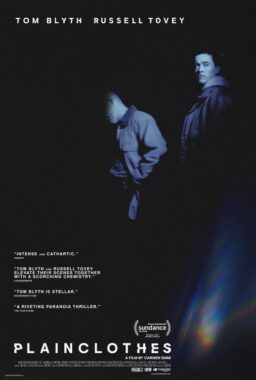From: Michael Eaton, South Pasadena, CA
Thank you, Mr. Ebert, for “The fury of the ‘Crash’-lash”. I think you’re onto something very important. As a compassionate conservative, I always felt that the “Brokeback” agenda began with The New Yorker and Diana Ossana latching onto the story because of the subject matter, perhaps ahead of the story. I read the whole collection of short stories by Annie Proulx, and was so dismayed when The New Yorker chose to print “Brokeback” instead of the many other, perhaps better, stories in the collection (sound familiar). And yet The New Yorkers and the Diana Ossanas and the Nikki Finkes of the world latched onto “the cause” that became the “Brokeback” phenomenon. Granted, they made a very good movie, from an already very good short story.
[Editor’s Note: “Brokeback Mountain” was submitted to the magazine as an individual story and was only later published in a compilation of Proulx short stories.]
But there’s something missing in the story, in my opinion, that isn’t missing in the others; something that you feel in your gut, something not quite right. Ms. Proulx is a great writer, of course, and basically pulls it off. But perhaps the problem with the story, the thing you feel in your gut, or as you put it, it’s just an “opinion”, is similar to the problem that Christian filmmakers have when trying to start with the agenda, rather than the story. And isn’t this a basic problem with Sundance movie selections, for example, where the cause or the agenda inherent within the subject matter of the movie become very important to the people who are somewhat unaware even of how important it has become to them? It’s similar perhaps to the surge of pride felt by conservative Christians when “Narnia” overtook “King Kong” at the box office.
And yet so many of the movies that were lauded this year have this very same, substantial problem. “Syriana“, “The Constant Gardener“, “Good Night and Good Luck.” and to some extent “Crash” all suffer from this kind of blind allegeance to agenda. In the case of “Syriana”, it’s the somewhat sympathetic portrayal of the budding terrorists set against the overly obvious big baddies of BIG OIL that totally derail it. “The Constant Gardener” is an energetically filmed farce, with its simplistic and unrealistic (I saw the film with a bunch of lawyers, who were laughing out loud) depiction of the EVIL DRUG companies set against the powerful (and perhaps exploitive) footage of how the Third World actually lives. “Good Night” unfolds without regard for the fact that the Verona project has since revealed many truths in the fuel that fired up McCarthy.
Whatever happened to the intellectual and political sophistication of a movie like “Under Fire“, which Kael even noted in her review? And how about some humility, George Clooney and others, about the fact that our freedom in this country to make art about these subjects doesn’t come free? Not a single “thank you” at the Academy Awards for the troops and their efforts on behald of 50 million Afghanis and Iraqis, as well as Americans. I’m glad you feel proud, Mr. Clooney, to be “out of touch,” but “mainstream America” looks at the fact that not a single self important “artist” thanked the troops from the stage with disgust.
Don’t get me wrong, I love that filmmakers are tackling this thorny subject matter, but I fear that their political persuasions are clouding their judgement with more and more frequency, and not just the filmmakers, but Sundance selection committees and LA Times reviewers. Thanks again for your thoughtful essay. I hope you have many readers who might recognize the problem in themselves.











